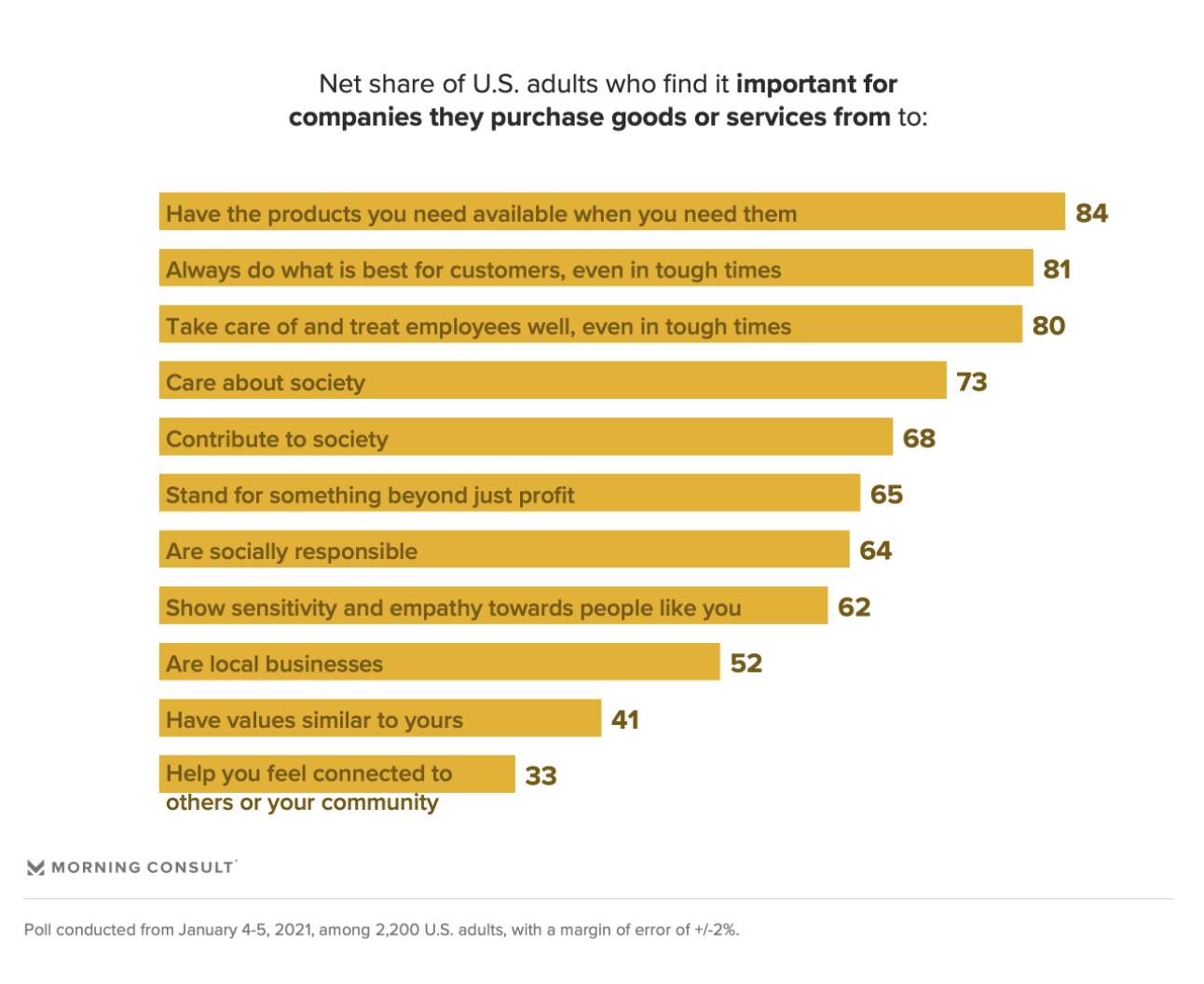By Bailey Chenevert
It may seem like it’s everywhere – influencers touting sustainable brands on their social media, grocers adding green products to their store shelves, trending boycotts of politician-endorsed brands. All these efforts have the same message: It’s better environmentally/politically/ethically to spend your money on this versus the alternative.
Conscious consumerism is the awareness of the impact of one’s purchases. As a reader of this blog, chances are you and the people in your social circle are already aware of the impact that purchases from ethical and sustainable brands can have (90% of Cluey followers categorized themselves as “extremely passionate” about either social, political or environmental issues in a recent survey.) Outside of more impact-conscious circles, however, the majority of people might not have the same purchasing habits and values.
One way we can assess the true size of conscious consumerism is through extensive market research. Common themes in the movement have been reported in a number of recent surveys and industry white papers from firms such as Morning Consult, Edelman and McKinsey & Company. The takeaway? While mainstream consumers are becoming more aware of the impact of each purchase decision they make, they still by and large aren’t changing their behavior… yet.
The Morning Consult reported that a vast majority of Americans believe corporations and CEOs are responsible for affecting social and cultural change. Additionally, Edelman reported that 63% of people want brands to play a part in making the world a better place. At the same time, respondents in Edelman’s 2020 Trust Barometer mostly prioritized price and quality ahead of brand trust. And for consumers that switched brands recently, McKinsey & Company also found that availability, convenience, and value were the biggest drivers of the switch, not company ethics. 
So people are becoming increasingly more aware of their purchases’ impact, but aren’t necessarily changing their spending habits to reflect their social and environmental values. This might sound like bad news, right? Well.. not exactly. As with many societal trends and norms, awareness and action have a bit of a cause and effect delay. The “attitude-behavior gap” persists even in the most conscious demographics. Many consumers may feel that their individual purchases won’t make a difference; so what’s the point?
Although climate change mitigation and liveable wages shouldn’t be the responsibility of each consumer, research shows that our individual decisions still matter – especially when these decisions add up to empower a collective movement of conscious purchasing. If you look more closely at the data in consumer reports, you’ll notice we’re getting better at making informed, sustainable purchases all the time.
Even today, a lot of people are consciously consuming to improve their worlds and many others join their ranks every year. For example, young people from the Gen Z and millennial generations are significantly more likely to stop buying brands that have acted unethically than older generations. It’s not unreasonable to expect more conscious consumerism in the future as these younger generations become the majority of people making purchases.
And the numbers agree – although only 37% of adults have boycotted brands they previously liked upon learning the brand acted unethically or improperly, this proportion is a 12% increase from last year’s. 70% of people believe being able to trust a brand is more important now than in the past. In fact, today’s consumers are creating a culture where business integrity is foundational to brand trust. Statistics aside, Morning Consult called passive consumerism “a relic of pre-pandemic life.”
So, how big is the conscious consumer movement, really? It’s becoming noticeable, and it’s only growing.
——————————————————————————————-
Bailey Chenevert is a freelance journalist and guest editorial contributor for Cluey Consumer. As a current master’s student at Appalachian State University, Bailey is researching the ways media consumption impacts our psychology. Bailey is passionate about impartial reporting on consumerism and the impacts that fashion brands have on our modern world. She has more than six years of experience in journalism as a writer, editor and director.

